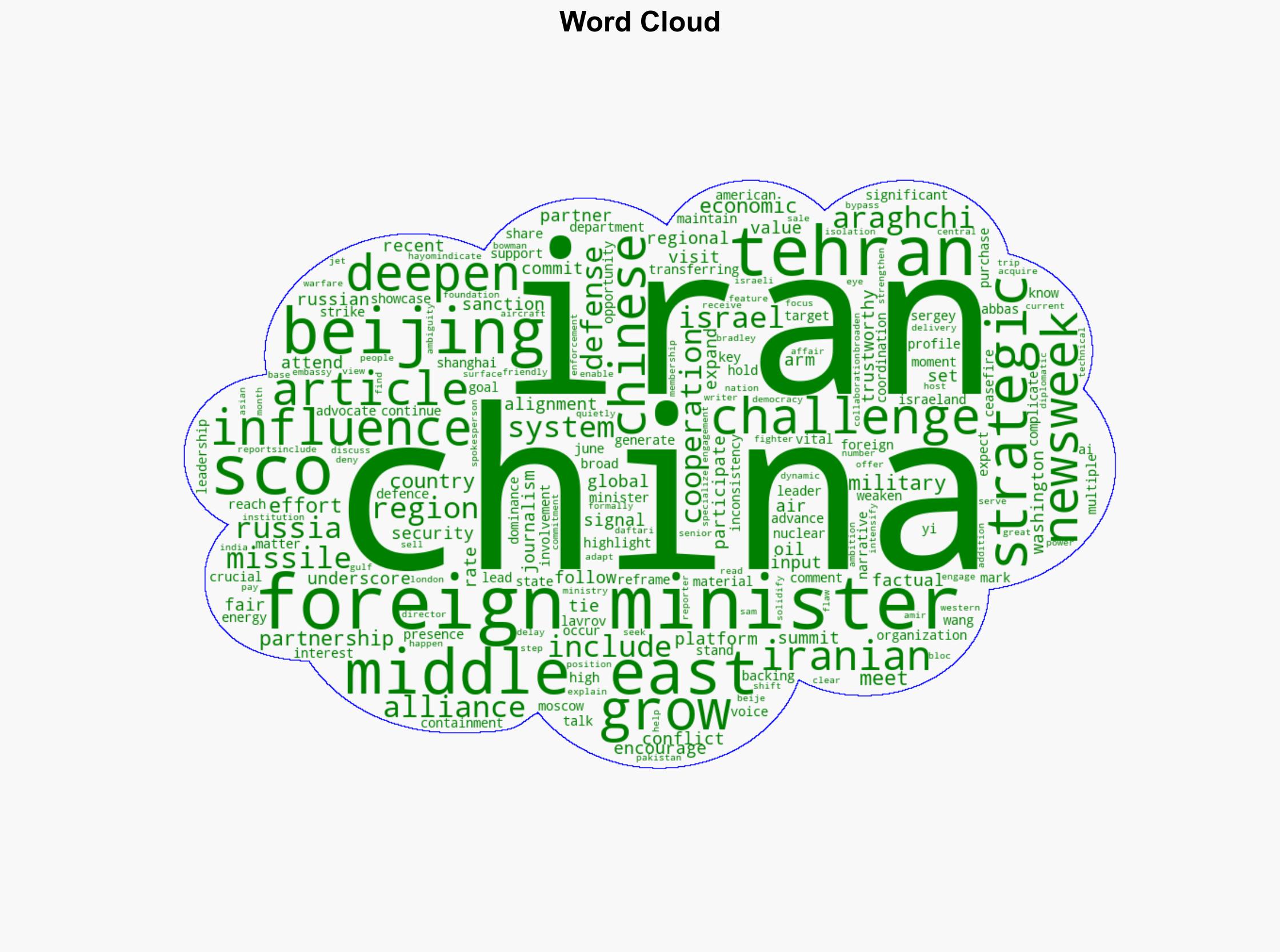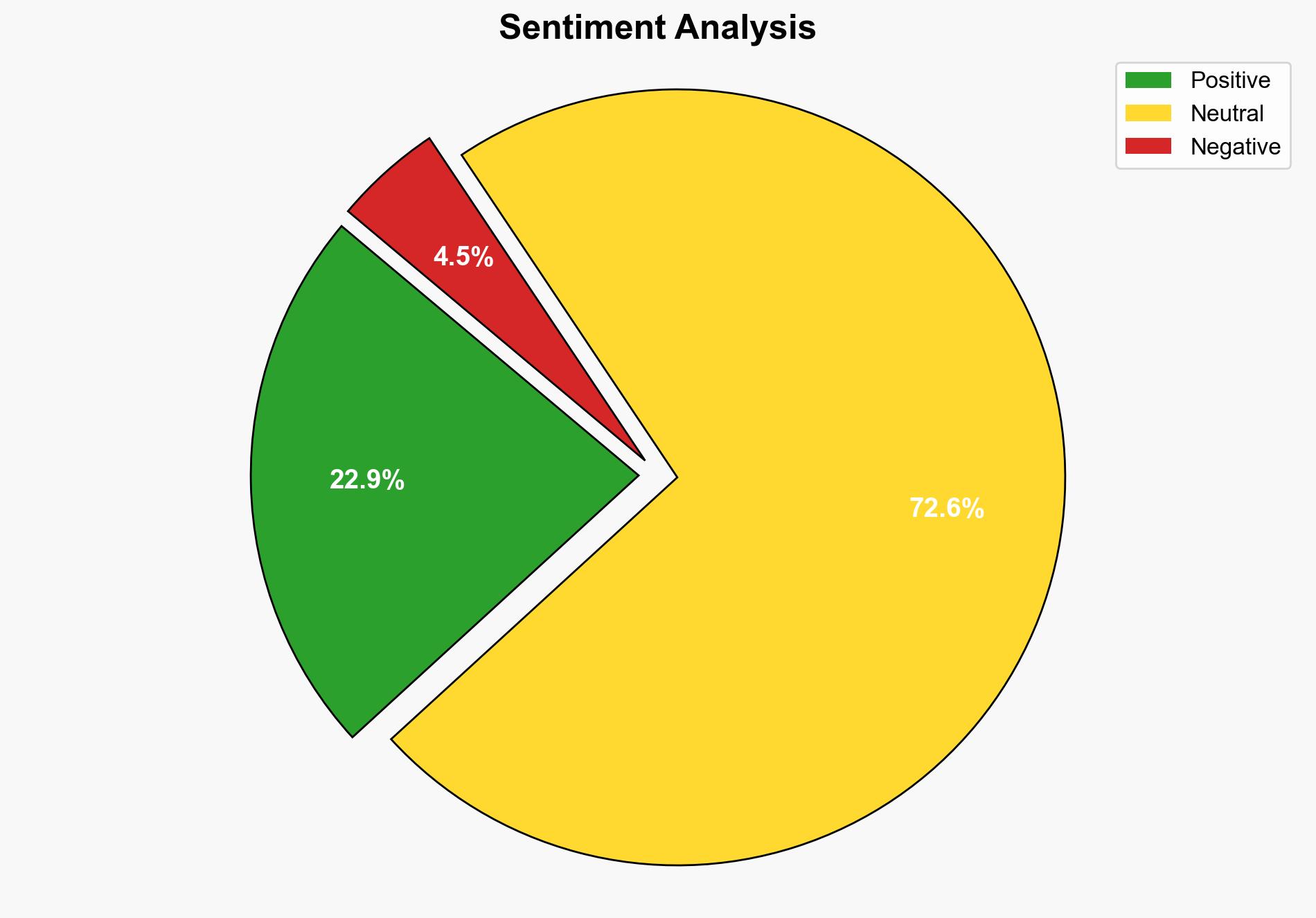Iran and China Challenge US as Alliance Grows – Newsweek
Published on: 2025-07-14
Intelligence Report: Iran and China Challenge US as Alliance Grows – Newsweek
1. BLUF (Bottom Line Up Front)
The evolving alliance between Iran and China poses a strategic challenge to US influence in the Middle East. This partnership is marked by increased military cooperation and economic engagement, potentially undermining US-led sanctions and containment strategies. Key recommendations include enhancing regional partnerships and intensifying diplomatic efforts to counterbalance this alliance.
2. Detailed Analysis
The following structured analytic techniques have been applied to ensure methodological consistency:
Causal Layered Analysis (CLA)
Surface events include Iran’s participation in the Shanghai Cooperation Organization (SCO) summit and China’s continued purchase of Iranian oil. Systemic structures highlight the strategic alignment between Iran, China, and Russia, challenging US influence. The worldview emphasizes a shift towards multipolarity in the Middle East, while myths focus on the narrative of resistance against Western dominance.
Cross-Impact Simulation
The Iran-China partnership may lead to increased military capabilities for Iran, influencing regional power dynamics and potentially escalating tensions with neighboring states, including Israel and Saudi Arabia.
Scenario Generation
Potential scenarios include a strengthened Iran-China-Russia axis, increased regional instability, and a shift in global energy security dynamics. Conversely, intensified US diplomatic efforts could stabilize the region.
Narrative Pattern Analysis
The alliance is framed as a counterbalance to US hegemony, promoting a narrative of strategic independence and regional cooperation against perceived Western interference.
3. Implications and Strategic Risks
The deepening Iran-China alliance presents risks of increased military tensions and economic realignments in the Middle East. This partnership could undermine US sanctions, bolster Iran’s military capabilities, and shift regional alliances, potentially destabilizing the existing power balance.
4. Recommendations and Outlook
- Strengthen alliances with Gulf states and Israel to counterbalance Iran-China cooperation.
- Enhance intelligence-sharing and cybersecurity measures to monitor and mitigate regional threats.
- Scenario-based projections:
- Best case: Diplomatic engagement leads to regional stability and reduced tensions.
- Worst case: Escalation of military conflicts involving Iran, supported by China.
- Most likely: Continued strategic posturing with periodic diplomatic and military tensions.
5. Key Individuals and Entities
Abbas Araghchi, Wang Yi, Sergey Lavrov
6. Thematic Tags
national security threats, cybersecurity, counter-terrorism, regional focus




